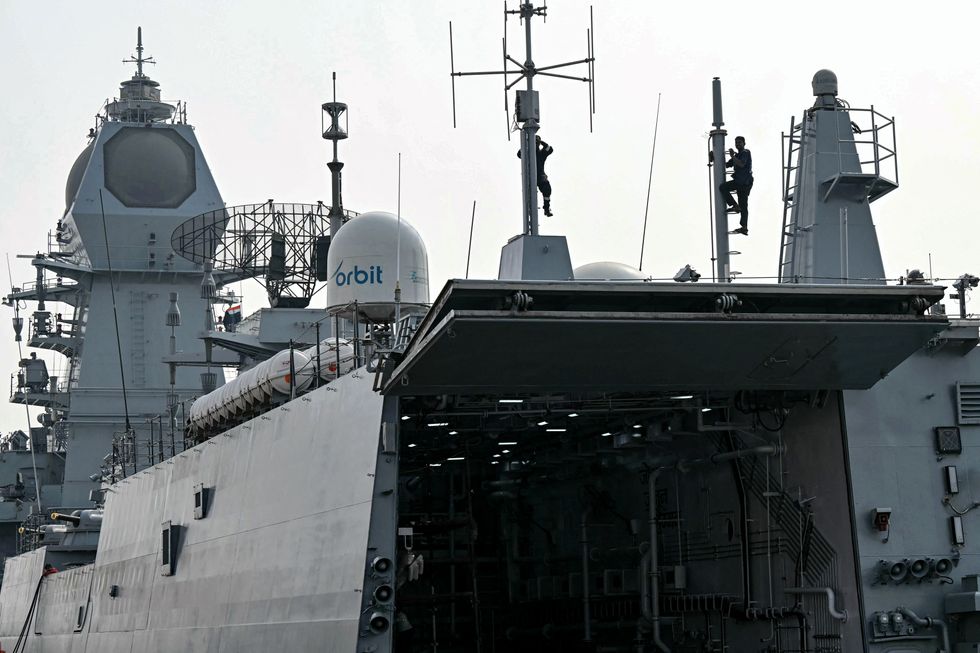INSTABILITY and violence in the Mediterranean’s former top tourist destinations are proving a boon to Portugal’s Algarve region, seen as a safe haven by comparison, local businesses say.
“Tourists are increasingly afraid and tend to head for less risky destinations,” said Pedro Lopes, manager of the Pestana hotel group in the sun-baked southern tip of the country.
Last Tuesday’s (28) bombings at Istanbul’s Ataturk airport, which claimed dozens of lives and wounded hundreds more, were just the latest in a long line of blows to countries, including Turkey, Tunisia, and Egypt in recent months and years.
“Here in Portugal, I feel safer than in Paris. Holidays should be about happiness, calm – they shouldn’t turn into nightmares,” said 53-year-old French IT expert Gilles Barboux during a trip to a golfing resort near Vilamoura, Portugal.
The green landscape dotted with pines, almond trees and glittering lakes is a far cry from Belek in southern Turkey, where Barboux and his wife Christine spent the past six years chipping and putting around the greens.
With Turkey now in the crosshairs of jihadist groups and Kurdish separatists – who have explicitly warned foreign tourists about the risks of travel to the country – the Parisian pair don’t see themselves making another trip via Istanbul.
“I would be too afraid” to set foot in Turkey again, Mme Barboux said.
By comparison, “Portugal is sheltered because it’s a country without much political influence in Europe and the world and also because it’s far from conflict zones,” said Renato D’Oliveira, who runs a travel agency in the small coastal town of Monte Gordo.
Portugal and neighbouring Spain have seen foreign tourism soar as headlines proclaimed the bloody attacks elsewhere around the Mediterranean.
Around 10.2 million visitors landed in the diminutive Atlantic republic in 2015, a boost of almost 10 per cent over the previous year.
For the Algarve alone, that meant 2.5 million people passing through and a 5 billion euro ($5.5bn) share of the 11.4 billion euros the country took in from tourists last year.
“Reservations have increased by 12 per cent since the start of the year, largely because of the instability affecting our main competitors,” said Elderico Viegas, president of Algarve hotel association Aheta.
Among the Algarve’s most tempting attractions are its 38 golf courses, which draw one in 10 foreign visitors.
Over 250,000 people in search of the perfect 18 holes bring in around 400 million euros ($445 million) in direct and indirect spending, Aheta estimates.
“The Algarve is the only region in Europe where you can play in shorts all year round,” said Diogo Gaspar Ferreira, manager of the Vale do Lobo golf complex squeezed between the Atlantic Ocean and a nature reserve for rare birds.
But the southern tip of Portugal is also beloved for its fine sandy beaches and yellow cliffs.
Most years around 1.8 million British visitors land at Faro airport, the Algarve’s capital but the Association of British Travel Agents reports bookings from the UK are up almost a third over summer 2015’s numbers.
While the British are expected to remain firm fans of the Algarve’s reliable sunny skies and low prices, hotel association Aheta has warned that British “economic and social turbulence could have a deep negative impact” on the region.
Brexit causing the value of the pound to tumble is blamed. But Spaniards, Germans and the French are now discovering Portugal’s treasures for themselves and could make up for a British shortfall.
“Ten years ago there were hardly any French tourists,” said hotel manager Lopes. “Now you can hear French being spoken everwhere.” Germans, too, have discovered the many beauty spots in the Algave.
“Portugal seems safe. But we’re mostly here for the sun,” said Roswitha Gell, a 59-year-old from Passau in southeastern Germany, after emerging from an ocean dip on the village’s Santa Eulalia beach.
That’s the image that the Algarve’s tourism sector wants to nourish rather than profiting from other destinations’ woes.
It would be “counter-productive” to make claims about security in advertising, said hotel association president Viegas.
After all, “nowhere is totally safe from an attack”.



















 Workers clean communication equipment aboard INS Surat on January 11
Workers clean communication equipment aboard INS Surat on January 11